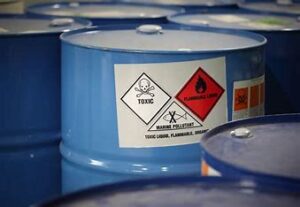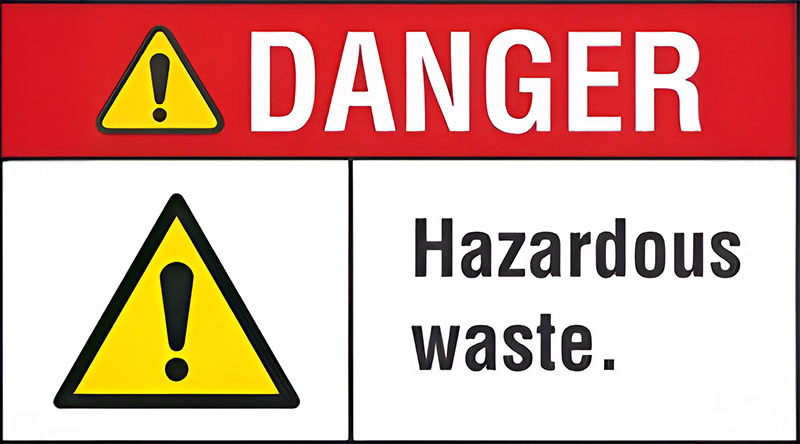On 14 January 2025, Dutch Customs intercepted a significant consignment of 800 tonnes of hazardous waste at the port of Rotterdam. The recent interception has brought renewed attention to the legal obligations surrounding the transport of dangerous substances. This discovery highlights the necessity for shipowners, charterers, and other maritime operators to remain vigilant and compliant with stringent national and international regulations.
Legal Framework Governing Hazardous Waste Transport
The international transport of hazardous waste is governed by a framework of regulations aimed at preventing environmental and public health risks:
- European Waste Shipment Regulation (Regulation (EU) 2024/1157): This regulation, which recently replaced Regulation (EC) No 1013/2006, governs the cross-border transport of waste within the EU. It requires pre-consent from the relevant authorities and imposes strict documentation obligations on all parties involved.
- Basel Convention: On a global level, the Basel Convention on the Control of Transboundary Movements of Hazardous Wastes and Their Disposal establishes protocols for ensuring that waste transfers are environmentally sound and consented to by the receiving countries.
- Dutch National Legislation: Within the Netherlands, Chapter 10 of the Environmental Management Act (“Wet milieubeheer”) forms the basis of the national waste management policy. Additionally, the “Regeling Europese afvalstoffenlijst” (Eural) defines hazardous wastes and their classification.
Violations of these regulations can lead to significant penalties, including fines and criminal liability. In the Netherlands, such cases are prosecuted under the “Wet op de economische delicten” (Economic Offenses Act).

Relevant Case Law
Dutch jurisprudence underscores the importance of adhering to these laws. In a notable case, a shipping company was found liable for transporting cable waste to South Africa without the necessary documentation. The court emphasized the strict liability nature of environmental regulations, stating that companies must ensure all permits and consents are in place, irrespective of intent.
Similarly, a case involving the illegal shipment of electronic waste to West Africa resulted in severe penalties for the responsible parties. The court ruled that even administrative oversights, such as incomplete shipping manifests, could amount to a breach of the law.
Recent Developments
The Rotterdam case is not an isolated incident. In 2024 alone, Dutch authorities reported several similar seizures of improperly documented waste shipments. These include hazardous industrial residues, e-waste, and contaminated soils. Such occurrences underline the ongoing risks associated with insufficient regulatory compliance.
Practical Recommendations for Maritime Operators
In light of these developments, the following measures are recommended for shipowners, charterers, and freight forwarders to mitigate risks:
- Thorough Knowledge of Regulations: Ensure familiarity with all applicable laws, including EU and international frameworks, as well as the specific rules of transit and destination countries.
- Comprehensive Documentation: Maintain accurate and complete shipping documentation, including waste codes, permits, and consents. Compliance with the European Waste Shipment Regulation’s notification procedure is critical.
- Engage Certified Partners: Collaborate exclusively with certified waste collectors, transporters, and processors. Verify their credentials and track records to minimize exposure to liability.
- Staff Training: Conduct regular training sessions for all personnel involved in waste transport. Focus on legal requirements, safety protocols, and emergency response measures.
- Internal Audits: Establish robust audit mechanisms to review compliance practices periodically. Early detection of potential issues can prevent costly sanctions and reputational damage.
- Communication with Authorities: Engage proactively with regulatory bodies. Seek guidance on ambiguous situations and report any potential violations immediately to demonstrate good faith.
Final remarks
The interception in Rotterdam serves as a stark reminder of the legal and operational risks associated with the improper transport of hazardous waste. By adhering to the above recommendations and maintaining a culture of compliance, maritime operators can safeguard against legal repercussions while contributing to the protection of the environment and public health.
NNPC Correspondents is always available to advise on what is needed and what preventive measures should be taken. Should any remarks be made or action taken by authorities, NNPC Correspondents is ready to assist you.
Please do not hesitate to contact us if you have any questions or need assistance.

